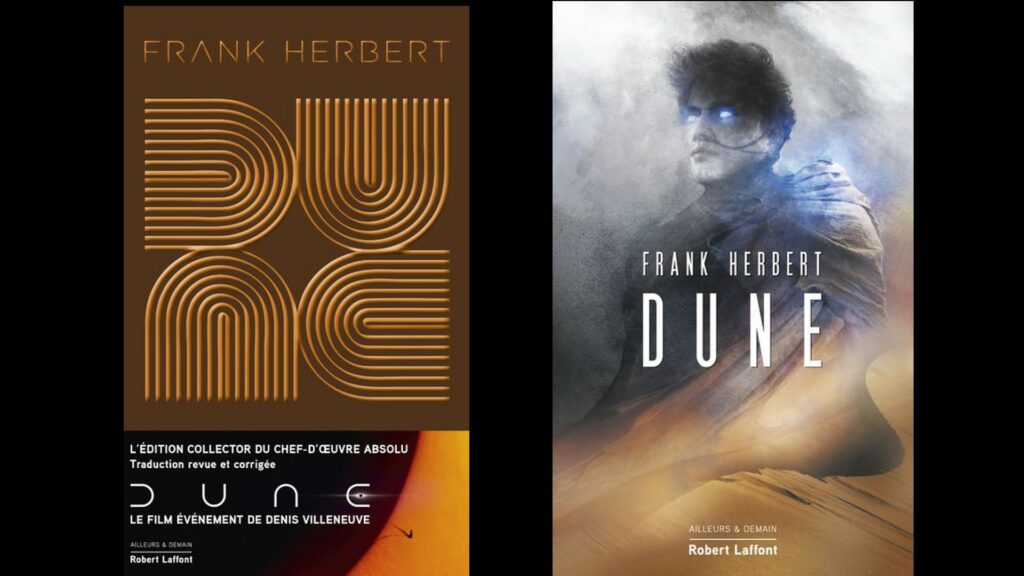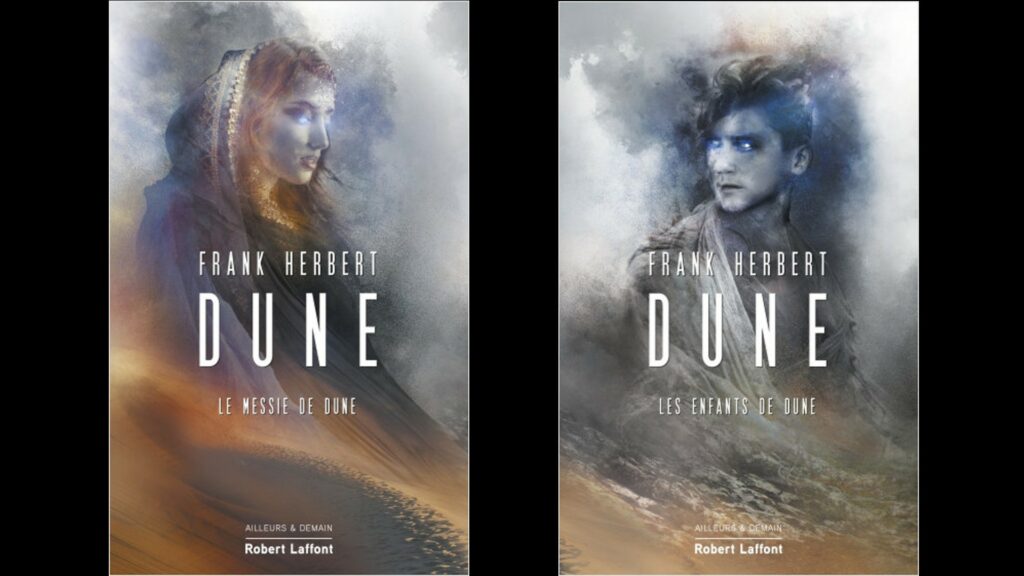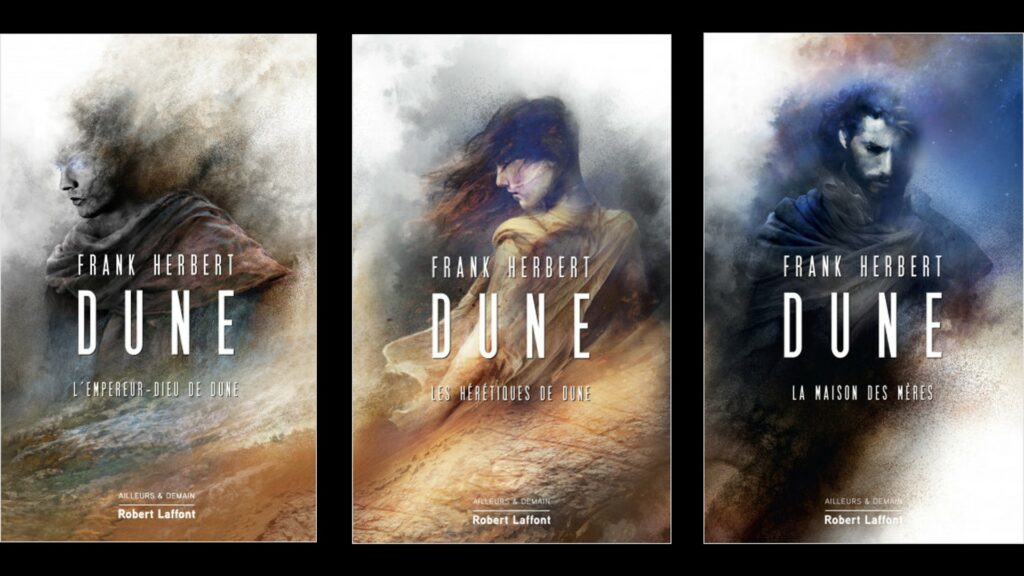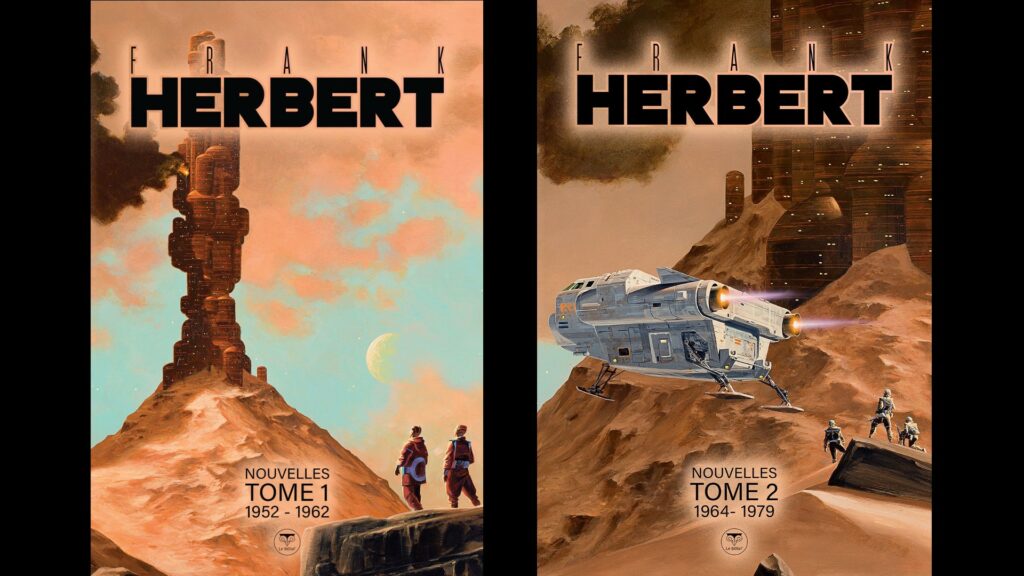Did you like Denis Villeneuve’s film? Here’s our guide to the books in the Dune literary saga, by Frank Herbert.
You loved the monumental adaptation of Dunes, theatrical release in September 2021? It arrived on video on demand by subscription (SVOD) on May 20 on MyCanal. The opportunity to immerse yourself in this formidable work, while waiting for the cinematic sequel, expected for 2023 (not to mention the TV series on the Bene Gesserit order, on the HBO side).
If reading the books is not an absolutely necessary prerequisite before seeing the work of Denis Villeneuve, the books of Frank Herbert remain however more complex and more extensive. If you liked the theatrical experience, chances are you want to delve deeper into this cult science fiction universe.
The revised and corrected editions of volume 1
In France, Robert Laffont editions have published a collector’s edition of the first volume of the saga, to celebrate the fiftieth anniversary of the French translation by Michel Demuth. For the occasion, the publishing house collaborated with Renaud Guillemin – researcher at the CNRS and specialist in SF (known for his blog L’Épaule d’Orion) – in order to offer a revised and corrected version.
This edition corrects some errors and typos. Without necessarily touching on historical translations, such as “distille”, Renaud Guillemin has allowed the text to gain in fluidity in its French version – but also in coherence for the entire universe. Reading the book is easier, which is not a luxury given that it is a substantial pavement.

To read this new version, several editions are available.
This edition does not only include the revised and corrected text, but also two prefaces: one by Denis Villeneuve, director of the adaptation, and the other by Pierre Bordage, French science fiction writer. There is an afterword by Gérard Klein, a great French analyst of SF.
Also in large format at Robert Laffont, there is a revised and corrected version, but with only the text by Frank Herbert – without the prefaces and postfaces. This edition is a little cheaper than the hardback. It benefits from a cover signed Aurélien Police, who composed the new graphic “theme” of Dune in France.
The new pocket edition, at Pocket, incorporates the new aesthetic signed Aurélien Police as well as the revised and corrected text.
Don’t forget that you can find all these editions at your bookstore, even by ordering online via the Independent Libraries website.
The sequels to the first volume
The literary saga of Dunes extends well beyond this first volume. The basic cycle consists of six volumes:
- Dunes (volume 1)
- Dune’s Messiah (volume 2)
- Children of Dune (volume 3)
- The God Emperor of Dune (volume 4)
- Dune Heretics (volume 5)
- The Mother’s House (volume 6)

All of these six volumes are the subject of a new collection at Robert Laffont, where all the texts are, again, reviewed and corrected. The covers of Aurélien Police form, together, a whole fresco representing the characters of the universe. These are large format editions. The Pocket editions gradually offer the pocket formats of this collection. Currently, volume 2 is already available at Pocket, at 7.60 euros. This second volume is the sequel to the first, again featuring Paul Atreides.

If you like luxurious editions, this volume 2 is the subject of a hardcover version at 21.90 euros at Robert Laffont, prefaced by the writer of SF Laurent Genefort, and postfaced by the scientific journalist Nicolas Martin. All the volumes of the cycle will eventually be the subject of a hardcover edition.
No need to start with the origins of the saga, published after
With the release of the film, you will no doubt learn about the cycle of Dunes and discover that there are a multitude of novels located before and after the original volume.
It turns out that Frank Herbert’s son, Brian Herbert, along with writer Kevin J. Anderson, continued the work with two prequel cycles, Before Dune (three books) then Dune the genesis (three books), then with a sequel cycle, After Dune (two pounds). Then, the two authors continued on the origins, with the cycle Dune the origins (three books). Add the cycle of Legends of Dune or even, recently, that of Caladan Chronicleswhose volumes will be released in 2020 and 2021.
In short, that’s a lot, but don’t panic: for Dunes, the reading order is very clear. The works of Brian Herbert and Kevin J. Anderson constitute a complementary extension. Read Dunesit is above all to discover the original work, the first cult volume and its direct sequel Dune’s Messiah. Then you can quietly pursue the other four volumes. It is only afterwards that you can ask yourself if you want to continue with the work of Brian Herbert and Kevin J. Anderson, but, beforehand, the question of the reading order does not really arise.
And if you try the stories of Frank Herbert?
Frank Herbert was also a well-known novelist in science fiction literature. The editions of Bélial’ propose, as such, a new project in French language: the integral of its news.

The first volume brings together his texts published between 1952 and 1962, i.e. a few years before the publication of Dunes. It is a rather fascinating literary experience, if the pen of Frank Herbert pleased or intrigued you when reading the novel. You will understand, from reading the news, that certain concepts are ultimately dear to his heart. As in Duneshuman emotions remain very little present (or in any case described in a factual way), but spiritual quests, the place of humans in the natural immensity or even the question of political power are already approaches that he is developing .
If certain texts of the collection are a little dated and have difficulty in fully captivating, the experience of reading the collection as a whole is an interesting literary approach for anyone wishing to deepen the work of the one who worked to build Dunes.

